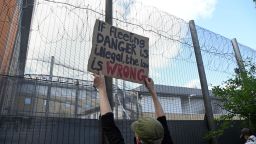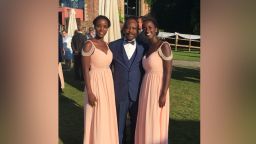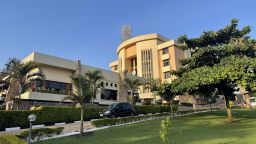The Pegasus Debacle and the Western Media’s Obsession with Undermining Paul Kagame
The Pegasus Project, an international journalistic initiative supported by Amnesty International, has brought salacious surveillance revelations back to the mediatic sphere. These allegations include that Rwanda placed 3500 people on a surveillance list, one of whom is Carine Rusesabagina, the daughter of a terrorist group sponsor and leader, Paul Rusesabagina. The Rwandan government has denied these allegations.
As far as I, a Rwandan living in Rwanda, is concerned, the criticisms of the Pegasus Project are really a non-issue. If anything, I find it irritating that Rwanda is forever expected to explain itself for supposedly emulating the west as far as preserving the safety of its people is concerned. However, it is essential to consider the underlying intentions of these mediatic attacks and to identify the pattern in both established and questionable journalistic outlets band-wagoning ageing, long-disproven anti-Rwanda narratives.
The Horse That Saved
As far as Global North’s media is concerned, it seems that Rwanda can do no right, least of all when attempting to protect its citizens. The tactics that aim to weaken the Rwandan order all revolve around legitimizing one narrative: the autocracy of the Kagame’s government. As it pertains to the welfare of Rwandans, there are no contemplatable angles for detractors to use besides misrepresenting the decisiveness of Rwanda’s leadership as dictatorial. The commendable social offerings and rapid economic growth of post-genocide Rwanda cannot be denied. Ironically, Rwanda’s most passionate critics have received research funding and gained promotions writing articles that highlight Rwanda’s advancement under President Kagame while, at once, refusing to attribute to him the due credit.
Westerners, including the International Cooperation Arena, have consistently “[Stressed] the Rwandan “miraculous” post-genocide recovery and the rapid progress that the country is experiencing,” according to The Milan Institute for International Political Studies. The article also highlights many of Rwanda’s feats under the Kagame leadership, such as its establishment as a technological hub in the East African region and its pursuit of self-sustainability through achieving the Millennium Development Goals with a variety of programmes, including, but not limited to, the Nine-Year Basic Education, One Cow Per Family and the Community-based Education system. Empathy and even self-and communal love have guided the pursuit of these measures. These sentiments are, contrary to our depictions of Rwandans in western media as hateful tribalists (a western projection), at the core of Rwandan culture. Similarly, it is no coincidence that reducing childbirth mortality rates has been a top priority of the Rwandan government; the maternal essence of Rwanda, particularly after the genocide that left countless mothers widowed, explains the inclination of Rwandans to nurture and protect human life at all cost.
Pegasus, ironically, is derived from a Greek mythological concept that very much aligns with the empathy-based desire to protect one’s community that I have earlier argued to be a fundament of Rwandan and African culture. Pegasus was a winged horse, which was ridden by a brave-hearted Corinthian hero named Bellerophon to defeat a monstrous fire-breathing creature (among other noble feats). The Pegasus software is an Israeli counter-terrorism tool developed by the NSO cyber-arms firm. It was designed to prevent the inferno of terroristic persecution, which Israel’s population is familiar with overcoming, from ravaging vulnerable communities once more.
I see nothing wrong with that. The Rwandan government has made it clear that Pegasus is not a technology that it can currently afford. However, I whole-heartedly hope that the government will soon acquire or develop its own similar technology. I, as a Rwandan, would prefer that the state, upon which I rely for my welfare and safety, could choose what information to gather to protect these fundamental interests of mine and other Rwandans, rather than that choice being left to the neo-imperialist billionaires selling every social media user’s information to the highest (and often, most ill-intended) bidder, or the US, alongside the UK, investing in the tapping of global communication fibre optic cables.
The Lies Meant to Kill
The insinuations that the Rwandan leadership would misuse its power are disingenuous. It surmises that there are some forces – for example the US (whose intentions for funding some of the most expensive and comprehensive spyware on the planet were never questioned, even as their methods were vaguely chastised) – that would use such authority “justly”. It’d be naïve to suggest that those that have repeatedly orchestrated coups that changed the course of Global South’s history – most likely for the worst – would abstain from using such technology out of a sense of morality that has been absent from their foreign social and economic policies until now.
Interestingly, none of the ten richest countries in the world was accused of using the Pegasus spyware by the Pegasus Project initiative; not one neo- or ex-colonizing nation, was alleged to employ the technology.
This only suggests that most Global North countries, by virtue of their financial power, do not have to outsource their surveillance initiatives. If anything, this is more alarming; for every individual, a developing, frequently threatened country could observe, the wealthiest western nations have the autonomy and means to spy on thousands.
Yet it is Rwanda, whose most fanciful accusations feature a mere 3500 people (a number that barely covers those that have overtly threatened our stability), including the daughter and supporter of a terrorist, that must answer to the ethics of its intelligence. Whereas the burden of proof is on the accuser as far as all western nation’s human rights abuses are concerned, and one must still use the word “allegedly” before linking Europeans to specific coups on African soil, western media does not allow Rwanda the privilege of presumption of innocence. This is the most revealing and vile aspect of this media onslaught on Rwanda. Indeed, to claim that those that chose reconciliation over revenge (as the thousands of once sentenced but now freed genocidaires are living proof of) would abuse their power to oppress simple critics is to project onto Rwanda the obsessive resentment that in fact defines our ardent critics.
This obsessive resentment – that portrays the intentions of Global North’s nations in pursuing intelligence as noble, and Rwanda’s desire to do the same as evil – stems, of course, from racism. That fact should be obvious from Amnesty International’s involvement alone. Despite a culture of racism in its own workplace, this organization is trusted to depict fairly non-white nations; this is deeply insulting. Moreover, it’s absurd that Amnesty should be considered a reliable source of information on Rwanda, after spreading a bald-faced lie that the 2017 Rwandan elections -amongst the most peaceful elections in the world – were marred by a “chilling climate of fear”.
The timing is not accidental, but neither is post-94 Rwanda’s survival against perverted foreign tactics to destabilize the country. Western media and its residue on African soil can spill all the ink they want, but Rwandans will not allow the Pegasus conjecture to distract, divide, or demonize them.
- Share
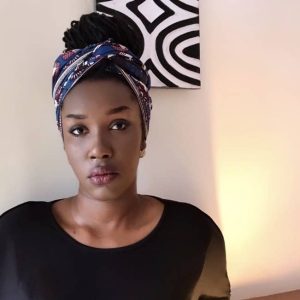
VERONIQUE NYIRAMONGI MBAYE
Je voudrai te dire felicitation pour ton article. Je voudrai t’encourager car je suis fier de toi. Tu exprime ce que nous pensons et observons avec un savoir faire et un grand talent. Merci pour ton engagement !
Even as evidence of the brutality and thuggishness of his rule mounts up, the West continues to support him
On september 20th a court in Rwanda found Paul Rusesabagina guilty of links to terrorist groups and sentenced him to 25 years in jail. His real crime, however, was to oppose President Paul Kagame. Mr Rusesabagina had been kidnapped in order to stand trial in Kigali, the Rwandan capital, in proceedings widely condemned as a travesty of justice. That has been the fate, and much worse, of many who have stood up to Mr Kagame. Mr Rusesabagina, however, is no ordinary Rwandan. A hotelier who courageously saved hundreds of lives during the Rwandan genocide in 1994, in which about 500,000 people were killed, he received the Presidential Medal of Freedom from George W. Bush in 2005. A celebrated film, “Hotel Rwanda”, was based on his life. Yet his appalling treatment and the absurd sentence has scarcely caused a ripple of criticism or pushback. America and Belgium both expressed “concern”. That’s it. Why?
Mr Rusesabagina’s treatment is not an isolated case. Evidence of the brutality and ruthless repression of the Rwandan regime has mounted. Mr Kagame was the de facto leader of the country from 1994 to 2000, when he became president. He long ago quashed any semblance of democracy in Rwanda, and is regularly returned to power with over 90% of the vote. Opponents abroad have been shot or strangled to death. None of these murders has been pinned directly on Mr Kagame’s intelligence services, but the president has openly said that the victims got what they deserved. A recent book by Michela Wrong, a British journalist, chronicles in detail the murder of Mr Kagame’s former intelligence chief in South Africa—and she leaves no doubt as to who she thinks ordered the hit. Mr Kagame has denied that Rwanda was involved in the killing.
Paul Kagame is seen by some as a liberator. But critics say Rwanda is only safe for those who toe the line
For decades, Paul Kagame has ruled Rwanda with an iron fist in the mold of the archetypal strongman African leader.
Under his rule, the East African country has emerged from the ruins of a devastating 1994 genocide that left nearly one million people dead to be hailed by Western allies as the model for growth in Africa.
In recent years, the country has forged a strong and financially rewarding alliance with Asian powerhouse China, which is also known for its authoritarian rule.
The US and the UK have also supported Rwanda with aid donations for many years, and US diplomat Tibor Nagy once described the country as “demonstrating the true potential of Africa.”
“In the past 25 years, Rwanda has reimagined itself as a strong state that invests in good governance and the success of its people,” the US Assistant Secretary of State for African Affairs said on his first visit to Rwanda in 2019. “In many ways, Rwanda is demonstrating the true potential of Africa.”
In a recent meeting between US Deputy Secretary of State Wendy Sherman and Rwandan Minister of Foreign Affairs Vincent Biruta, the US acknowledged it still had a strong bilateral partnership with Rwanda but also raised concerns about human rights in the country.
In a report last year detailing human rights practices in Rwanda, the US State Department identified “significant human rights issues” that range from “unlawful or arbitrary killings by the government” to “forced disappearance by the government,” among others.
Critics say the successes of Kagame’s authoritarian rule have come at the expense of human rights in the country.
Rwanda is this week hosting the Commonwealth Heads of Government Meeting (CHOGM) in the capital Kigali, the first gathering of Commonwealth leaders in four years. Prince Charles, British Prime Minister Boris Johnson, and Canadian Prime Minister Justin Trudeau are among world leaders attending.
The UK is ermerging as one of Rwanda’s strongest allies and PM Johnson said in interviews from CHOGM that criticism of Rwanda is based on “stereotypes of Rwanda that is now outdated.” UK Home Secretary Priti Patel recently brokered a £120 million ($147m) deal with Rwanda to send asylum seekers to the East African country, an accord that hangs in the balance after a last-minute intervention by the European Court of Human Rights (ECHR).
Patel described Rwanda as “a safe haven for refugees” as the UK vowed to push ahead with the controversial scheme.
‘No safe haven’
Far from being a “safe haven” for refugees as claimed by Patel and others in the UK government, Rwanda has been accused by human rights groups of treating refugees badly.
In 2018, at least 11 Congolese refugees were killed when Rwandan police opened fire at the Kiziba refugee camp and Karongi town as refugees protested cuts to their food rations, Amnesty International reported at the time. Rwandan authorities told CNN the country’s police resorted to shooting to control a group of violent protesters and said it was an isolated incident.
Rwanda had previously received refugees from Israel.
According to Israeli media, some of the refugees deported to Rwanda between 2014 and 2017 were struggling to survive, with some destitute. Many of the refugees have fled Rwanda while some others who chose to remain in the country have been denied official documents by Rwandan authorities, leading to the arrest and imprisonment of some, Israeli media Haaretz reported.
The UK/Rwanda asylum deal comes less than a year after the UK’s International Ambassador for Human Rights, Rita French, said she was displeased with Rwanda’s refusal to probe human rights abuses as recommended by the British government.
Lewis Mudge, the Central Africa Director at Human Rights Watch, told CNN recently that “the UK has cynically decided to change its position on Rwanda… it’s going to ignore the human rights abuses in Rwanda and claim that it is a safe and acceptable country to send refugees to, to justify this cruel and immoral program.”
He added that Rwanda is a safe country only for those who toe the line.
“Just because Rwanda is clean and is safe for the Westerners doesn’t necessarily translate to safety for all Rwandans. Rwanda is a safe country for Rwandans if you keep your head down and don’t ask any questions or challenge anything. The moment you step up and start to question something or have an independent opinion and express it, Rwanda becomes a very difficult country to live in. These Western countries need to recognize that,” Mudge added.
A spokesperson for the Rwandan government declined to comment on HRW’s allegations, dismissing the agency as “a discredited source.”
Mudge described the UK-Rwanda asylum deal as an affront to the Commonwealth’s values.
“The UK is ostensibly the leader of the Commonwealth and this is an abdication of one of the pillars of the Commonwealth, which is the fundamental respect for human rights,” he said.
Refugees sent from the UK would comprise various nationalities, but Rwandan Foreign Minister Biruta said the asylum program will only be for people seeking asylum in the UK who are already in the UK and would exclude refugees from Rwanda’s neighbors such as the DRC, Burundi, Uganda, and Tanzania.
The UK government had said the program was targeted at curbing people-smuggling networks and discouraging migrants from making dangerous sea journeys to the UK.
From genocide to growth
To his supporters and Western and Asian allies, President Kagame is a liberator who has modernized and transformed Rwanda, a former Belgian colony.
His party, the Rwandan Patriotic Front (RPF), has been in power since the end of the civil war in 1994, with Kagame serving as vice-president and defense minister until 2000 and then president for the last 22 years.
Kagame unified the country after the genocide, working to abolish the divisive terms “Hutu” and “Tutsi” and to integrate the two cultures.
The gains made in Rwanda under his rule are undeniable.
Rwandan government spokesperson Yolande Makolo told CNN the country has made remarkable progress in the last 28 years, citing increased life expectancy, near-universal healthcare, and low corruption levels in the country.
According to the World Bank, Rwanda has witnessed “strong economic growth … accompanied by substantial improvements in living standards.” A report by the World Bank in 2020 stated that the country also has been successful in “reducing administrative corruption … from an accepted practice to one that is regarded as illegitimate and, once identified, one that is punished.”
Rwanda also ranks 1st among 13 low-income economies and 7th among the 27 economies of Sub-Saharan Africa for its innovation capabilities on the 2021 Global Innovation Index.
The country has further endeared itself to the West by advancing gender equality and creating a female-dominated cabinet. Around 61% of its parliamentary seats are held by women.
Kagame has been aggressive in attracting foreign direct investment into the country. In 2018, the Rwandan government signed a three-year promotional deal with English Premier League side Arsenal “as part of the country’s drive to become a leading global tourist destination, using ‘Visit Rwanda’ messaging,” the English football club said in a statement.
Arsenal’s male and female team jerseys have featured the ‘Visit Rwanda’ logo on their left sleeve ever since.
Crackdown on opposition
However, such gains notwithstanding, Kagame’s rule has been characterized by widely reported human rights abuses.
The Freedom in the World 2022 Report by Freedom House found that “while the regime has maintained stability and economic growth, it has also suppressed political dissent through pervasive surveillance, intimidation, torture, and renditions or suspected assassinations of exiled dissidents.”
Rwandan opposition politician Victoire Ingabire was the presidential candidate of the Unified Democratic Forces (UDF) party in the 2010 Rwanda presidential elections and says she is a victim of Kagame’s crackdown on dissent.
She told CNN she had left the Netherlands, where she lived with her family, to play an active role in Rwandan politics but ended up being jailed on what she says were trumped-up charges of terrorism and threatening national security by the Kagame regime.
“I was arrested in 2010 and spent eight years in prison. In 2018, I was released by a presidential pardon which came with the condition that I couldn’t leave Rwanda freely without government permission. Three times I have asked for permission to visit my family in the Netherlands but the government did not respond to my request,” Ingabire said.
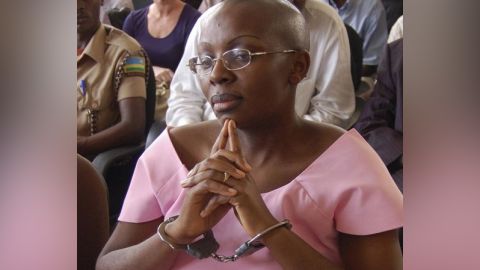
Rwandan government spokesperson Makolo told CNN Ingabire “was tried and convicted of serious crimes including complicity in acts of terrorism and promoting genocide ideology.”
Makolo added that: “Ingabire had her conviction commuted after she appealed for clemency, however her criminal record remains because her crimes were proven beyond doubt.
“As part of this deal, she has to request to leave the country, as does anyone else in the same situation.” Makolo did not comment further on the status of Ingabire’s requests to leave the country.
Ingabire said she challenged her imprisonment at the African Court on Human and Peoples’ Rights – established by the African Union – in 2014 and was acquitted three years later after the court found that the Rwandan government had violated her rights.
Ingabire says she now lives in fear.
“I am afraid for my life … because you don’t know what can happen to you if you’re a member of the opposition,” she told CNN via a phone call.
“If you criticize the government, you are labeled as an enemy of the state, and then you’re arrested and put in prison … President Kagame does not tolerate criticism against his regime.”
Makolo did not respond to the specific incidents Ingabire spoke about. She, however, accused Ingabire of making “baseless claims” against Rwandan authorities.
“Despite being labeled as an opposition politician, she (Ingabire) has no discernible policy platform, she doesn’t offer solutions that would help improve our country. She only uses her platform to make baseless claims about the government. This doesn’t help advance our nation’s progress,” Makolo said.
Responding to the widespread reports of abuse, Makolo said Rwanda could not be characterized as a country with no respect for human rights.
“This characterization bears no relation to the country I know … A central principle of Rwanda’s reconstruction has been ensuring that every single person is treated … as a human being – that means that we do not tolerate discrimination of any form. This is enshrined in our constitution and upheld by our commitment to the rule of law,” Makolo told CNN.
Another outspoken critic of Kagame is Paul Rusesabagina, who was last year convicted of terrorism-related charges and sentenced to 25 years in prison by a court in Kigali. Rusesabagina, who inspired the film “Hotel Rwanda,” was renowned for saving more than a thousand Rwandans during the country’s genocide by sheltering them in the hotel he managed.
He was accused by Rwandan prosecutors of being involved with the National Liberation Front (FLN), an armed wing of the Rwanda Movement for Democratic Change (MRCD). Rusesabagina admitted to having a leadership role in the MRCD but denied responsibility for attacks carried out by the FLN.
His family says he was not given a fair trial and was kidnapped while overseas and returned to Rwanda in August 2020. Rusesabagina told the New York Times in a video interview he was en route to Burundi on a private plane to speak to churches on August 28 but found himself surrounded by soldiers in Rwanda when he woke up.
Speaking to CNN at the time, Kagame denied claims that Rusesabagina was kidnapped and renditioned to Rwanda.
“It was very proper and legal,” Kagame said of Rusesabagina’s arrest.
“If he was working with somebody in Burundi in the same plot of destabilizing our country, and the same person, for example, decided to drive him to Kigali – the person he was working with, and he had trusted – and the government was working with that person he trusted, how does the government become culpable for that operation?” he added.
‘Rwanda is a poor country’
In addition to raising human rights concerns around the asylum deal, opposition politician Ingabire says that high unemployment rates in Rwanda will prevent the refugees deported by the UK from building lives there.
“There is a high rate of unemployment in Rwanda, especially among the youth. … What will happen to the refugees when the British government stops funding their accommodation? They don’t have a future in Rwanda,” Ingabire said.
She also considers Rwanda’s economic growth a myth, as poverty remains prevalent in the country’s rural areas. According to the UN’s Multidimensional Poverty Index, poverty rates in rural parts of the country stand at 42%, far higher than in cities at 15%.
“Outside Kigali, there are no infrastructures as what you see in Kigali. The Rwandan government has not increased employment across the country, that is why we have the majority of poverty in the rural areas,” Ingabire told CNN.
The government declined to comment on Ingabire’s claims.



